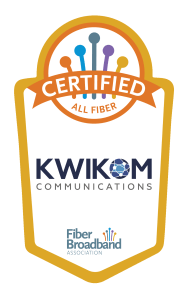Cyber Hygiene: Simple, Everyday Steps to Keep Your Information Safe
In today’s digital world, practicing good cyber hygiene is like washing your hands—it’s something you should do every day to stay safe. With more devices connected to the internet than ever before, keeping your data secure has never been more critical. Let’s dive deeper into the best practices for maintaining your digital health.
1. Password Management
One of the most fundamental parts of good cyber hygiene is password security. Strong, unique passwords for each of your accounts are crucial. Tools like password managers can help you organize and store them securely without the headache of trying to remember them all. Consider adding two-factor authentication (2FA) to your most important accounts for an added layer of security. The key is making sure you update your passwords regularly—don’t rely on one for too long!
2. Regular Software Updates
Outdated software is like an unlocked door for cybercriminals. Always keep your devices up to date with the latest software and security patches. Most cyberattacks exploit known vulnerabilities that developers have already addressed—so if you’re not updating, you’re leaving your system exposed. Whether it’s your smartphone, home Wi-Fi router, or work laptop, make sure automatic updates are enabled wherever possible.
3. Watch Out for Public Wi-Fi
Using public Wi-Fi can be risky. Hackers can easily intercept data transmitted over unsecured networks. If you have to use public Wi-Fi, avoid logging into sensitive accounts or making online purchases. For added protection, use a Virtual Private Network (VPN), which encrypts your connection and shields your personal information from prying eyes.
4. Regular Data Backups
Imagine losing all your important data due to a ransomware attack or system failure. Regular backups can save you from this nightmare. Use external drives or cloud-based services to back up important files and data. This way, even if your system is compromised, you can restore your information without paying a ransom.
5. Be Cautious with Emails and Links
Phishing scams are a constant threat. Always be wary of unsolicited emails or links from unknown sources, especially ones asking for personal information. Even familiar-looking emails can be deceptive—double-check the sender’s email address for typos or suspicious-looking URLs. When in doubt, contact the company or individual directly to verify the email’s legitimacy.
6. Secure Your Home Network
Your home network is the gateway to all your connected devices. Make sure your router uses WPA3 encryption (the latest standard), and avoid using the default password. Rename your network to something unique that doesn’t give away personal details like your name or address. Also, consider segmenting your network, which means setting up a separate network for your IoT (Internet of Things) devices like smart speakers and thermostats—this way, if one device gets compromised, the rest of your network remains safe.
7. Educate Your Family
Cyber hygiene is a household effort. Make sure everyone in your family understands the importance of staying vigilant online. Teach them to recognize phishing emails, create strong passwords, and use secure websites when making online purchases.
Conclusion: Start Practicing Cyber Hygiene Today
Throughout Cybersecurity Awareness Month, we’ve shared valuable insights into protecting yourself online. From our Cybersecurity Month Overview to Phishing Prevention and Business Benefits in Gigabit Cities, each blog offers practical tips to keep your data secure.
For even more cybersecurity tips, visit the National Cybersecurity Alliance’s Stay Safe Online, the FTC’s phishing guide, or explore US-CERT’s resources. Stay vigilant and safe online!








